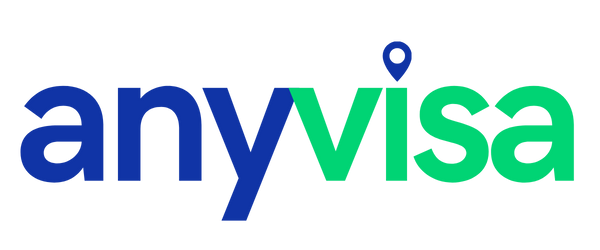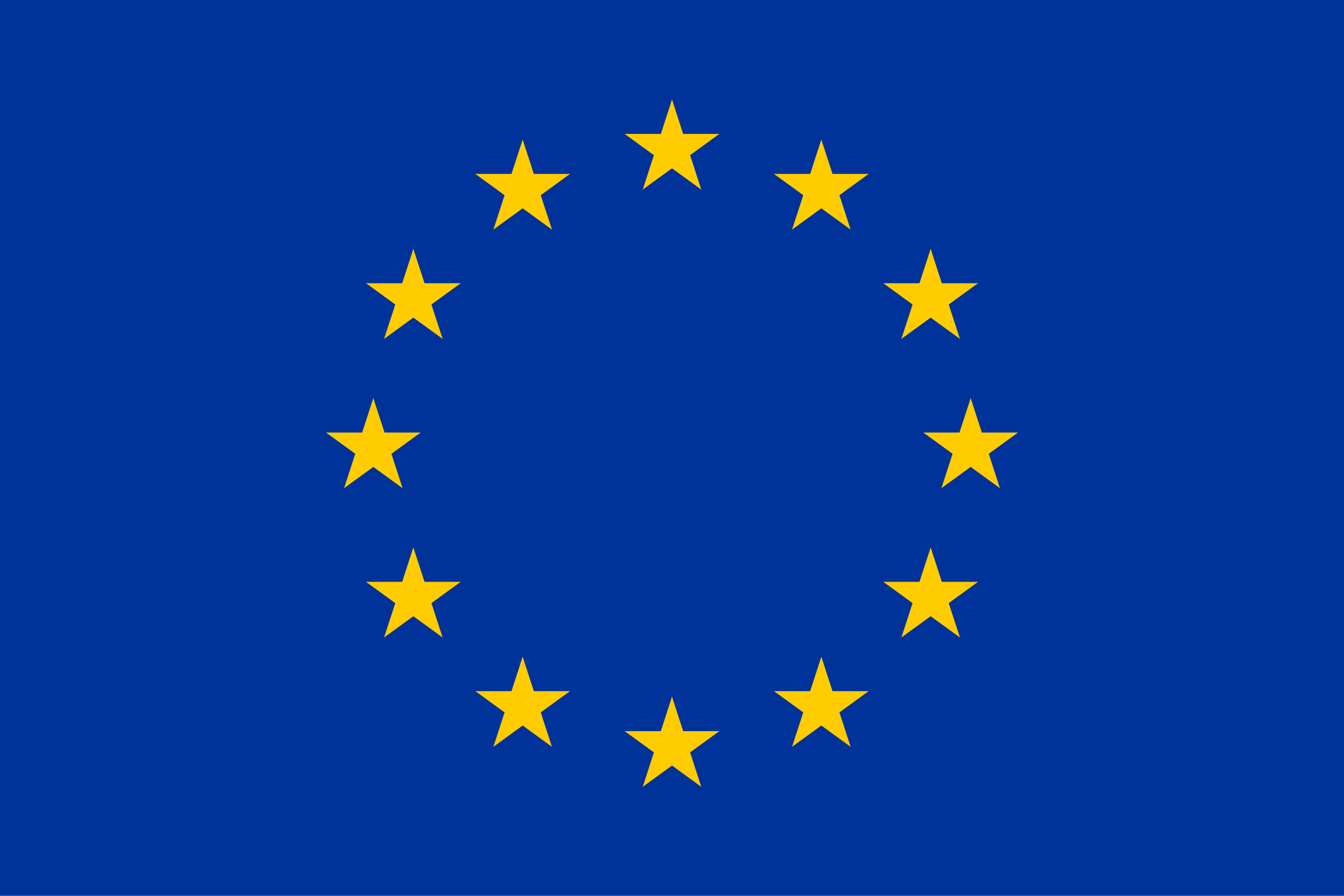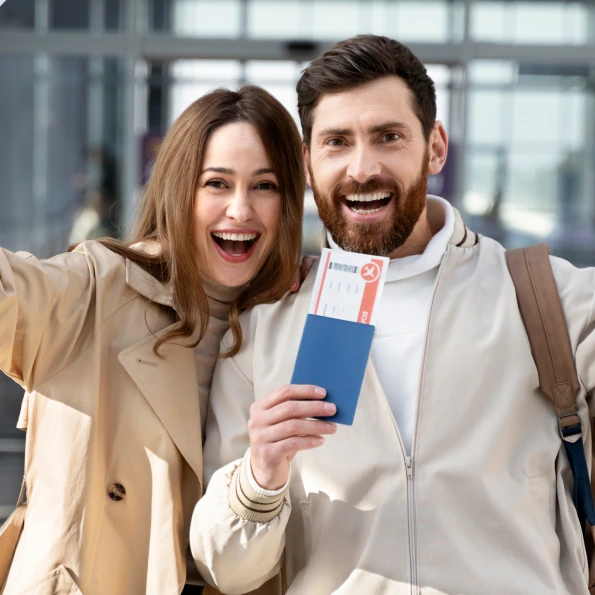Understanding Visa Scams
Visa scams are misleading techniques that take advantage of those who are unfamiliar with visa application procedures or are desperate to obtain a visa quickly.
Scammers frequently construct phoney websites that resemble official visa service providers, making it difficult for applicants to distinguish between genuine and fraudulent platforms.
Understanding the warning indications of a visa scam or a phoney website will help you avoid falling prey to fraudulent schemes.
How can you detect whether a visa website is phoney or a scam?
If you opt to order from a third party, you must understand the distinctions between fraudulent and reputable travel visa websites. The last thing you want is to exchange your passport and credit card information with a fraudulent visa service!
The document you receive may appear to be completely official. However, any immigration officer will see right through it, ruining your trip and resulting in (legal) issues with immigration services, as well as financial and time losses.
Here are the telltale indications to watch out for!
- Unrealistic promises and commitments.
Be wary of websites that make exaggerated promises and guarantees about visa approval or processing times.
Legitimate visa applications must adhere to specified rules and protocols established by immigration authorities. While visa service providers can assist applicants and speed up the application process, they cannot guarantee visa approval or waive legal requirements.
Furthermore, if the website claims to give the cheapest visa or a deal that appears too good to be true, it is most certainly a scam. Governments do not often give discounts or promotions on visa application fees. A reputable third-party provider always lists both the official government cost and its own processing expenses.
- Requests for payment or personal information through hazardous means.
Scammers frequently use dangerous methods to solicit cash or personal information, such as passport or bank account numbers. Never send your credit card information, passport information, or bank account numbers via email.
Legitimate visa service providers usually ask money only after confirming the eligibility and conditions for a visa application. They prioritise the security and privacy of their clients' information and adhere to existing data protection standards.
- Lack of contact information.
Legitimate visa service companies realise the need of giving clear and easily accessible contact information. If a firm website lacks contact information, such as an email address, it should raise questions about its reliability.
Genuine visa service providers are open about their contact information and make it easy for applicants to contact them for assistance or questions.
- Unprofessional Website Design
An unprofessional design is one of the tell-tale indications of a visa scam or a fraudulent website. Legitimate visa service companies engage in good site design to deliver a user-friendly experience for their clients.
Fake websites, on the other hand, frequently have low-quality designs, out-of-date layouts, and grammatical problems that demonstrate a lack of attention to detail.
- Lack of credible qualifications and reviews.
Trustworthy visa service providers usually highlight their credentials, certificates, and customer reviews prominently on their websites. If you can not locate any valid credentials or reviews, it could be a red indicator for a scam or fraudulent website.
Membership associations such as the International Air Transport Association, consumer protection agencies, and/or the Federal Trade Commission are all legitimate credentials. Check the reviews on well-known review sites such as Trustpilot and Google.
Tips to Avoid Fake Visa Websites and Scams
Before choosing any visa service company, do your homework and confirm their credibility. Look for reviews, testimonials, and ratings from reliable sources to determine the provider's legitimacy.
If you are confused whether a visa website is a fraud or real, follow these steps:
Check the website's security: Ensure that the website has sufficient security measures in place. Look for "https://" and a padlock icon at the start of the website URL, which indicates a secure connection.
In addition, check for security symbols or badges that reflect the website's dedication to securing your information.
Reputable web browsers, such as Chrome and Firefox, also include features that can help you identify a bogus website. Update your browser on a regular basis to help them perform their job.
Validate the company's contact information: Legitimate visa service companies clearly disclose their contact details. Check the stated address, phone number, and email address against official sources or conduct a quick online search to ensure their accuracy.
A lack of contact information or unresponsive customer service should raise concerns.
Seek recommendations and references from credible sources, such as friends, relatives, or review websites, to locate reputable visa service providers.
Personal references might provide useful information and help you avoid fake websites.
- Compare pricing and services: Be wary of websites that advertise drastically lower costs or unrealistic discounts. Compare the prices and services supplied by various visa service providers to ensure they meet industry standards.
Legitimate websites normally provide a clear breakdown of both government visa fees and their own processing expenses. An honest visa business will also provide reimbursements if your visa is denied or a mistake is made.
Bonus tip: If something seems wrong or too good to be true, trust your instincts. If a website raises concerns or makes you uncomfortable, it is best to look into other options and select a service provider you are confidence with.
Common scams involving visa applications
Scammers take advantage of people's desire to travel or relocate to other countries while applying for visas, which is sad. To defend yourself from scams, you should be aware of the following typical ones:
Phishing and spam emails/calls: If you receive an unsolicited email urging you to apply for a visa, or if you receive a call from an unknown number, be sceptical. Especially if they ask you to pay before you have even done your investigation, as these messages are always designed to extract money from you in some way.
Flag it as spam, delete the bogus emails right away, and ban the contacts on your phone.
Visa lottery or prize notifications: Scammers may claim that you have won a visa lottery or a slot in the United States diversity visa programme and want cash or personal information in order to process your award.
Legitimate visa programmes and US Homeland Security do not operate in this way, therefore be wary of such claims.
Job offer scams: Fraudsters may pose as employers or recruitment firms and offer attractive job opportunities abroad. They say they can speed up the visa application procedure for a price. When dealing with unfamiliar job offers, exercise caution and carefully check the legitimacy of the company and its personnel.
Unauthorised agents: Some persons or illegal agencies claim to speed up the visa procedure or get visas through illegal means. Engaging with such agencies may result in serious legal penalties, jeopardising trip plans, future visa eligibility, and personal finances.
Credit card frauds: The majority of the scams described above involve credit card fraud. Scammers use malware to access your credit card accounts and steal vital information. This can result in identity and financial theft. Always monitor for strange transactions and notify your financial institution and credit card company.


.svg.png)










-1730992692.jpeg)
